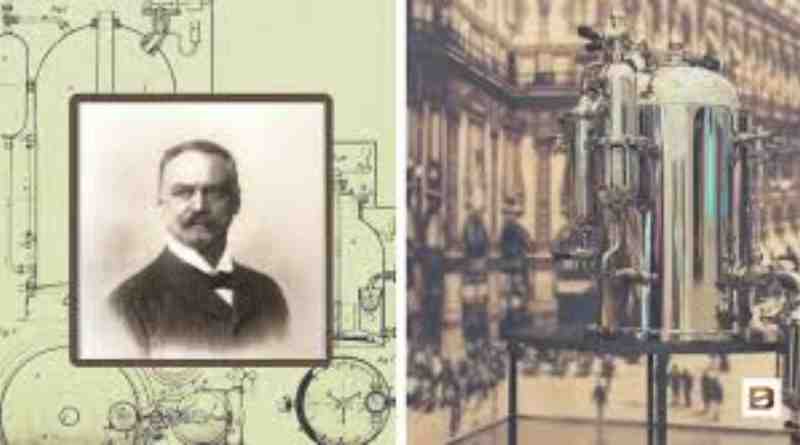The Enigmatic Partner Behind a Revolutionary Inventor
In the annals of history, the names of great inventors like Angelo Moriondo are often celebrated, their achievements becoming the stuff of legend. However, behind these luminaries often stand equally remarkable individuals who, though less recognized, play crucial roles in the journey to greatness. Such is the story of Angelo Moriondo’s wife, a figure shrouded in mystery, yet undeniably pivotal in the tale of the man who revolutionized the world of coffee.
Angelo Moriondo: A Brief Overview
Before delving into the life of Moriondo’s wife, it is essential to understand who Angelo Moriondo was. Born in Turin, Italy, in 1851, into a family of entrepreneurs, Moriondo inherited a penchant for innovation and business. His most notable invention, the espresso machine, patented in 1884, was a marvel that transformed coffee brewing. This invention laid the foundation for the modern espresso machines we see in every coffee shop today. Moriondo’s genius in developing this machine demonstrated not only his technical skill but also a deep understanding of the burgeoning café culture of his time.
The Shadowed Figure: Angelo’s Muse and Partner
The identity of Angelo Moriondo’s wife remains enigmatic. Historical records from the era often overlooked the contributions and even the identities of women, particularly those married to famous men. Despite this, it is undeniable that Moriondo’s wife was a significant presence in his life. As Moriondo immersed himself in his work, she would have been the cornerstone of his personal life, providing emotional support, managing domestic affairs, and perhaps even contributing to his business endeavors.
The Role of a 19th Century Inventor’s Wife
To appreciate the possible influence of Moriondo’s wife, we must understand the typical role of a wife during the late 19th century, especially in Italy. Women of that era were primarily confined to the domestic sphere, managing households and raising children. However, they often played an uncredited role in their husbands’ careers. In Moriondo’s case, his wife likely managed social obligations, hosted gatherings where Moriondo could network, and maintained a stable home environment, enabling him to focus on his inventions.
Beyond Domesticity: A Potential Collaborator?
While most historical accounts focus on Moriondo’s technical prowess, it’s conceivable that his wife contributed ideas and feedback to his work. Women in the 19th century, though not formally educated in sciences or mechanics, often possessed a practical understanding of everyday technologies. Her insights into the domestic and commercial application of the espresso machine might have influenced its design and functionality, making it more user-friendly and commercially viable.
A Partner in Business: Managing the Background
Aside from possibly influencing the espresso machine’s development, Moriondo’s wife might have played a role in his business ventures. Moriondo was not just an inventor but also a successful entrepreneur, running establishments like the Grand-Hotel Ligure in the heart of Turin and the American Bar in the Galleria Nazionale of Via Roma. These businesses would have benefited from a supportive partner who could oversee various aspects of management, from handling finances to interacting with customers. Her role, albeit behind the scenes, would have been critical in ensuring the smooth operation of these ventures.
The Cultural Landscape of Turin and Its Influence
Turin, during Moriondo’s lifetime, was a cultural and intellectual hub, a milieu that undoubtedly influenced both Angelo and his wife. The city’s vibrant café culture, a gathering spot for intellectuals, artists, and entrepreneurs, would have been a familiar environment for them. In such a setting, Moriondo’s wife would not have been just an observer but an active participant in these intellectual circles, engaging in conversations that could spark inspiration and offering perspectives that enriched Moriondo’s work.
The Legacy of Angelo Moriondo and His Wife
The legacy of Angelo Moriondo and, by extension, his wife, is not just in the invention of the espresso machine but in the culture it engendered. Today, coffee shops are not just places to enjoy a beverage; they are social hubs, workplaces, and creative spaces. This culture can trace its roots back to Moriondo’s invention, and arguably, to the supportive environment his wife helped cultivate.
Reimagining History: Giving Credit Where Due
As we reassess historical contributions, it’s essential to acknowledge the often-uncredited roles that women, like Angelo Moriondo’s wife, played. While we may not know her name or the full extent of her involvement, recognizing her existence and potential impact is a step towards a more inclusive understanding of history.
Conclusion: Celebrating Unseen Contributors
In conclusion, the story of Angelo Moriondo’s wife, though largely untold, is a powerful reminder of the silent strength behind many of history’s great figures. Her life, intertwined with Moriondo’s, played a crucial role in his journey as an inventor and entrepreneur. By acknowledging her and others like her, we pay homage to the countless unseen contributors who have quietly shaped our world. The narrative of Angelo Moriondo is incomplete without recognizing his wife’s influence, a testament to the enduring power of partnership and support in the pursuit of innovation.
Read also: check

